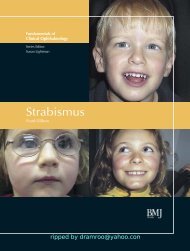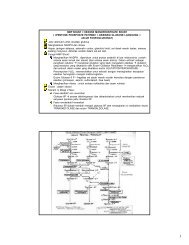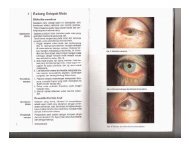International Handbook of Clinical Hypnosis - E-Lib FK UWKS
International Handbook of Clinical Hypnosis - E-Lib FK UWKS
International Handbook of Clinical Hypnosis - E-Lib FK UWKS
You also want an ePaper? Increase the reach of your titles
YUMPU automatically turns print PDFs into web optimized ePapers that Google loves.
98 INTERNATIONAL HANDBOOK OF CLINICAL HYPNOSIS<br />
1996; Pope & Brown, 1996; Schacter, 1996; Spanos, 1996; Terr, 1994; Yapko,<br />
1994), and I focus on the reporting <strong>of</strong> recovered memories <strong>of</strong> childhood abuse by<br />
adults who had not previously reported such memories. This type <strong>of</strong> reporting can<br />
be argued to involve the therapeutic recovery <strong>of</strong> repressed, true memories Briere &<br />
Conte, 1993; Courtois, 1992; Freyd, 1994; Herman & Schatzow, 1987; Olio, 1989;<br />
Pope, 1996; Williams, 1994, 1995). This type <strong>of</strong> reporting, however, can be argued<br />
to involve the creation <strong>of</strong> false memories Brenneis, 1994; Garry & L<strong>of</strong>tus, 1994;<br />
Lindsay & Read, 1994; L<strong>of</strong>tus, 1993; Lynn & Nash, 1994; Ofshe & Singer, 1994).<br />
As McConkey 1997; McConkey & Sheehan, 1995) pointed out, there are<br />
dif®culties involved in achieving a balanced and practical position on the issues<br />
associated with recovered memory <strong>of</strong> childhood abuse. Nevertheless, it is important<br />
to work with clients in a way that is pr<strong>of</strong>essionally defensible and therapeutically<br />
bene®cial. To help in this, I comment on: a) memory, repression, and recovered<br />
memory; b) hypnosis and memory; and c) guidelines for evidence-based practice.<br />
MEMORY, REPRESSION, AND RECOVERED MEMORY<br />
There is extensive evidence that memory is extremely susceptible to the in¯uence<br />
<strong>of</strong> suggestion, postevent information, and source confusion Belli & L<strong>of</strong>tus, 1996;<br />
Brainerd & Reyna, 1996; Conway, Collins, Gathercole & Anderson, 1996; Hyman<br />
& Pentland, 1996; McDermott, 1996; Mitchell & Zaragoza, 1996; Payne, Elie,<br />
Blackwell & Neuschatz, 1996; Read, 1996; Roediger, Jacoby & McDermott, 1996;<br />
Zaragoza & Mitchell, 1996). For instance, Zaragoza & Mitchell 1996) showed<br />
people a video <strong>of</strong> a burglary and then asked questions containing misleading<br />
suggestions, some <strong>of</strong> which were repeated; then, they tested memory for the source<br />
<strong>of</strong> the suggestions. Zaragoza & Mitchell 1996) found that, in comparison to<br />
subjects exposed to the suggestion only once, those exposed repeatedly were more<br />
likely to con®dently remember the suggested events from the video and to claim<br />
they could recall witnessing the suggested events.<br />
Despite the consistency and reliability <strong>of</strong> this type <strong>of</strong> ®nding, laboratory research<br />
has been rejected by some as irrelevant to the debate about recovered memory. For<br />
instance, Freyd & Gleaves 1996; Kristiansen, Felton & Hovdestad, 1996; van der<br />
Kolk, 1994; but see Roediger & McDermott, 1996) argued that laboratory research<br />
on memories <strong>of</strong> benign, arti®cially constructed stimuli tells us nothing about<br />
processes involved in memory for severely traumatic events. However, recognizing<br />
that memory is malleable does not mean recovered memories <strong>of</strong> childhood abuse<br />
are necessarily inaccurate; it simply means they are not necessarily accurate.<br />
Whereas there is clinical observation and personal anecdote that individuals may<br />
avoid or be unaware <strong>of</strong> threatening memories Martinez-Taboas, 1996), such<br />
memories can be in¯uenced by various cognitive and social events L<strong>of</strong>tus, 1993).<br />
In other words, there is no strong reason or evidence why memory for traumatic<br />
events should follow entirely different psychological principles from those followed











![SISTEM SENSORY [Compatibility Mode].pdf](https://img.yumpu.com/20667975/1/190x245/sistem-sensory-compatibility-modepdf.jpg?quality=85)





